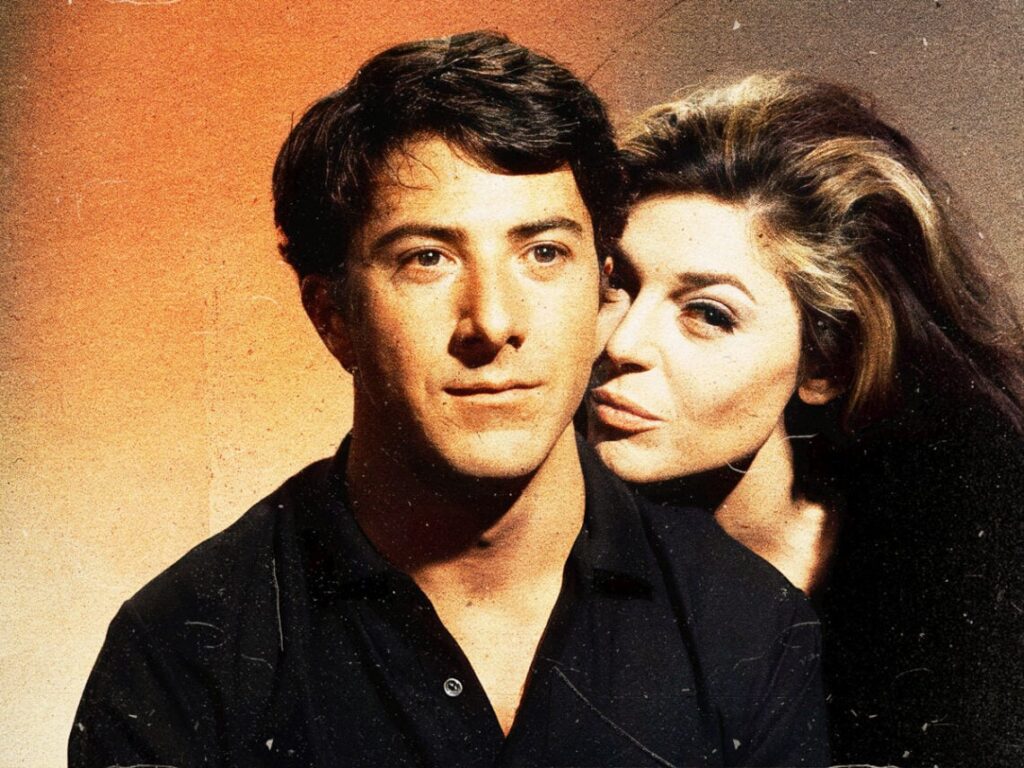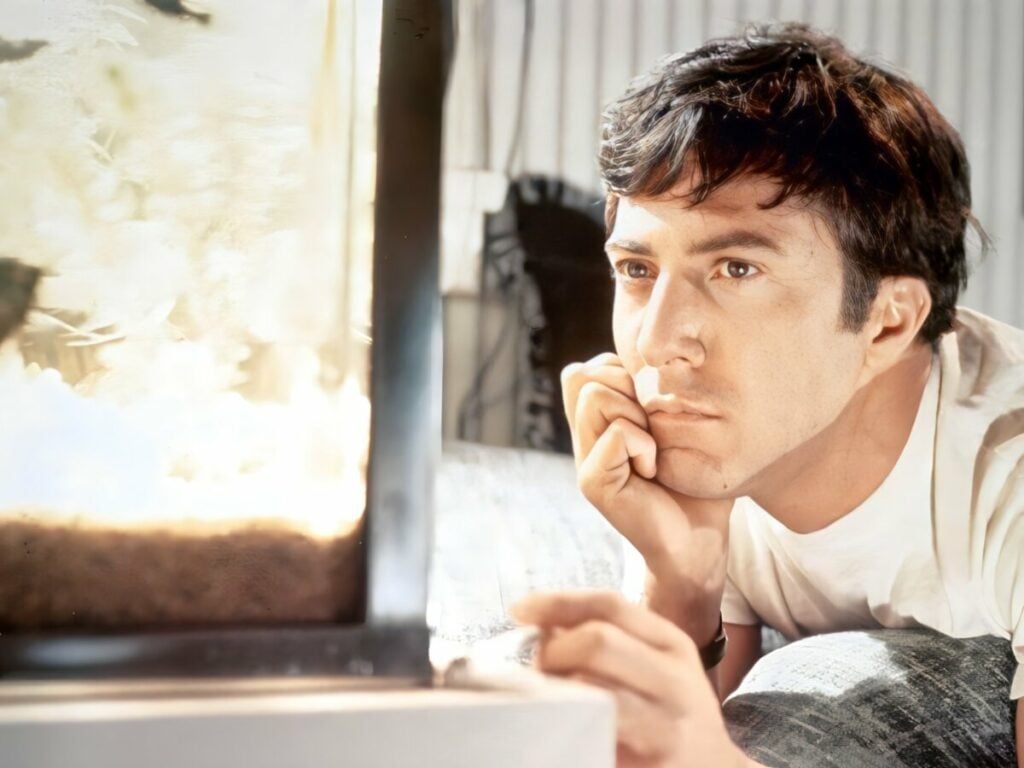Explaining the ending of Mike Nichols movie ‘The Graduate’
 Posted On
Posted On
(Credits: Far Out / Alamy)
One of the most iconic mainstream American comedies ever made and the highest-grossing release of 1967, Mike Nichols’ coming-of-age dramedy The Graduate is very much a product of its time but nonetheless contains many universal themes that still ring true today.
Dustin Hoffman’s Benjamin Braddock finds himself wandering aimlessly through life after completing his higher education, feeling increasingly cast adrift and being pulled towards an existential crisis despite his tender years. However, he gets the excitement he so desperately craves when he encounters Anne Bancroft’s Mrs. Robinson.
After beginning an affair with the married woman, Benjamin eventually ends up falling in love with her daughter, but she ends up deciding to marry another man instead. Not one to be deterred, the reckless and headstrong graduate interrupts the nuptials, convinces Katharine Ross’ Elaine that her future truly lies with him, and they run away together for a happy ever after. Or do they?
At first glance, The Graduate culminates with two star-crossed young lovers giving in to their impulses and realising they’re destined to be together, but that only tells one side of the story. The film ends on a note of uncertain ambiguity, which indicates things may not be anywhere near as rosy for Benjamin and Elaine as they first thought after deciding ruining her nuptials and hopping onto a bus to start their lives together was the smartest thing to do.
But what does the end of The Graduate mean?
There’s a Shakespearean quality to both generations of the Braddock and Robinson clans becoming embroiled in the burgeoning relationship between Benjamin and Elaine, with his impulsive decision to gate-crash her eventual wedding having long since become a fixture of pop culture and parody.
In his mind and heart, he’s saving her from a marriage that’s destined to be unhappy, which would have remained the case were it not for the final shot. When the couple sit down on the bus, the camera lingers on their expressions, allowing the audience to witness their ear-to-ear grins fading away into something altogether more bittersweet.
The biggest question, though, is one that remains completely unanswered: what happens next? They can’t go home after the commotion they’ve caused. Benjamin left his car at the wedding venue, and Elaine dropped out of college to get married in the first place. Neither of them has a job; they’ve most likely been excommunicated from their families, creating a melancholic undertone to the final scene.

Benjamin began the film with no ambitions, aspirations, or ideas of where his life was heading. He’s in exactly the same place at the end, except Elaine is now along for the ride, too. It was already shown in The Graduate that their relationship was fractious and prone to arguments, something that may well be exacerbated by the pair being completely cut off from their respective parents.
The final shot evokes the sudden realisation that Benjamin and Elaine haven’t taken long to realise there are going to be consequences for their actions, and there’s no guarantee they’ll be happy together. Sure, it made for a fist-pumping third act finale, but happily ever after certainly isn’t written on their faces.
Does Mrs. Robinson love Benjamin?
There’s no overt indication that Mrs. Robinson has fallen in love with Benjamin, and if anything, she was seeking little more than solace and excitement to help put some distance between her unhappy personal life and the heated dalliance she embarks upon with the youngster, making him the right man at the right time.
She’s stuck in an unhappy and loveless marriage that only exists because she fell pregnant with Elaine, who she didn’t want born out of wedlock. She does become slightly possessive in threatening to expose her affair with Benjamin when he signals his intentions to date her daughter, though, but he beats her to the punch by telling her himself. If she was truly in love with him, Mrs. Robinson would have no doubt gone a lot further than issuing a strong warning.
[embedded content]

